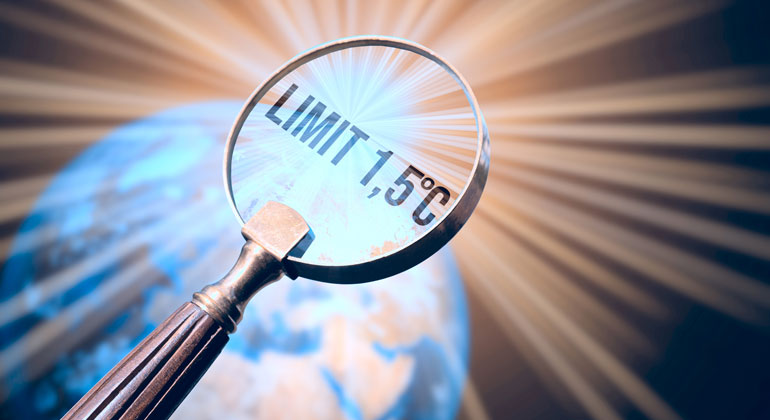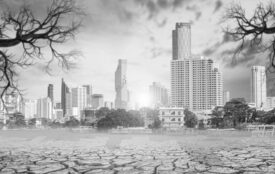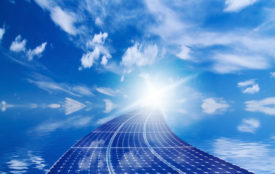Is the 1.5-degree target still achievable?
In 2023, the global average temperature was above 1.5 degrees for the first time all year round compared to pre-industrial times. We have all experienced the consequences: forest fires, droughts, floods, tornadoes, billions in damage. Does this mean the Paris climate protection target has failed?
This goal of the Paris Climate Change Conference in 2015 states that the 196 countries should keep warming “below two degrees Celsius below pre-industrial levels” and make “efforts” to achieve even 1.5 degrees.
Does this mean we have already missed this target if we were already 1.54 degrees above it in 2023?
No, because the Paris target is intended for a long-term period and not for a single year. This means that greenhouse gases must be significantly reduced in the long term (climate neutrality) and removed from the atmosphere in the even longer term (climate positivity). Both are technically possible. We just have to do it.
The EU Commission has just decided to reduce greenhouse gas emissions by 90 percent by 2040 compared to 1990 levels. “A remarkable step” – SPIEGEL rightly writes. Especially in these times of war. EU Commission President Ursula von der Leyen (CDU) has thus prevailed over the obstructionists in her own party with her “Green Deal” policy.
However, as always, these are decisions and not yet measures. Climate targets have often been missed, especially in the transport and construction sectors. But at least climate protection and the Green Deal have not fallen by the wayside, as many feared. Of course, the complete financing of the ambitious Green Deal is still up in the air. The EU has pledged to be the first continent to achieve climate neutrality by 2050. It has therefore decided to phase out combustion cars by 2035. Climate policy cannot be pursued without state intervention – just like the billions in subsidies for coal, steel and the old car industry in the past.
The economist Ottmar Edenhofer, head of the Potsdam Institute for Climate Impact Research, put it this way in the Süddeutsche Zeitung: “We need a planetary waste disposal system” (SZ, February 9, 2024) if the climate is to remain reasonably humane.
The current positive news for Germany: The German government has finally adopted a power plant strategy that can help Germany achieve its climate targets.
The current negative news: The German solar industry is doing very badly. Key players such as Meyer-Burger, Heckler and Solarwatt are on the verge of bankruptcy or emigration due to cheap Chinese competition (China has subsidized its solar industry with 80 billion dollars in recent years, Germany now wants to provide 45 million) and the huge eco-subsidies in the USA (380 billion). The entrepreneurial solar enthusiasts in Germany need better state framework conditions.
Even now, 90 percent of the solar modules installed in Germany come from China. Have we already forgotten the fatal consequences of our dependence on Russian gas? In 2023, China will have installed as many photovoltaic systems as the entire world a year earlier: 217 gigawatts. Prices for solar modules fell by half between Jan. 2023 and Jan. 2024. It is clear who the future belongs to.
The fate of the German solar industry seems to be sealed – as it was 12 years ago – if those in German politics who still have a plank in front of the sun get their way. However, it is clear that the solar industry will be more important for the economy in the future than the automotive industry. To this day, Germany has a leading position in solar research, which is recognized throughout the world. For this reason alone, the traffic light coalition should not stand idly by and watch the solar industry drift away.
In order to achieve the 1.5 degree target, we also need a strong German solar industry and a solar breakthrough like the EEG (Renewable Energy Sources Act) in 2000, which was adopted by over 70 countries at the time. Germany is renewable, Europe is renewable, the world is renewable. But politicians must not oversleep the future.
Source
Franz Alt 2024 | Translated with www.DeepL.com/Translator (free version) |








